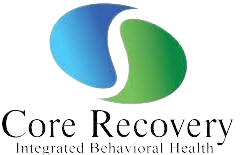In the United States, there are eight million children who are living with parents that struggle with addictions. While it may be easy to think your child may never see you drinking, or using pills or recreational drugs, we shouldn’t forget that children are far more perceptive than adults give them credit for. Often, kids can pick up on changes in behavior, especially in a parent, because they’re connected to them.
For children growing up in a home with at least one parent suffering from substance abuse, family life is often anything but stable. Erratic behavior of the parent suffering from addiction may cause unpredictability and chaos. Studies further show that children thrive with a stable home and routine. In addition to an unstable family life, some kids find their basic needs are ignored by the parent with addiction issues, which causes trust and other mental health issues that the child may have to address as they mature.
How Kids Can Feel
Children living in a home where one or both of their parents or guardians are suffering from addiction often feel a range of emotions. These emotions may cause feelings of unsafety, feeling unwanted, and being unsure of their surroundings. There are long-lasting effects for children who grow up in an unstable home, and the child is more at risk of turning to drugs or alcohol to escape from their mental health struggles.
A child who is growing up in an unstable home will often act out, and/or withdraw from social activity. Sometimes, the process of parentification takes a toll because the child becomes the caregiver for the parent and misses out on many of the important developmental aspects of being a child.
How to Help Children with a Parent Suffering From Addiction
There’s a lot to consider when a parent is suffering from addiction. Do you tell the child? Is there anything that can be done to help them maintain a healthy mental state? The short answer to both of these questions is yes. But let’s dig into this more.
Whether a parent should talk to their child about their struggles with addiction depends on a few factors such as their age and maturity level. As mentioned above, kids often know that something isn’t right in their world and see more than parents are aware of. Choosing what exactly is said depends on the age of the child.
Make sure it is made very clear that the child did absolutely nothing wrong, as children often internalize things to be a direct reaction to something they did. In addition to that, it’s also important to not ask a child to keep a secret, especially from another parent or influential person in their life.
If you have a child and you or your partner is struggling with addiction, seeking help from a therapist may also be beneficial. Often, having a family therapist who is trained in addictions can help children process the behaviors of addiction and give both the child and the parent skills to cope with any lingering feelings. If you’re struggling with addiction, we invite you to contact us to learn about the integrative care model Core Recovery uses in our treatment plans.
Potential Consequences for Children
While parents suffer from addiction, there is an impact on those that surround them, including children in their care. Studies have shown that these children are more likely to try drugs and alcohol, as well as struggle with substance abuse due to behavior issues stemming from an unstable childhood home and early exposure to the substances. In addition, genes may be responsible for 40 to 60 percent of addictions.
If you are struggling with substance abuse, it’s not too late to get help for yourself or your children. Core Recovery offers both an Intensive Outpatient Program (IOP) and a Partial Hospitalization Program (PHP). Our integrative care model includes combinations of group therapy, including creative expression group, individual therapy, family systems therapy and medication management provided by a psychiatric nurse practitioner. At Core, we tailor each patient’s treatment plan to their specific, individual needs. Reach out and give us a call to discuss your options today.







 In CA By O360®
In CA By O360®